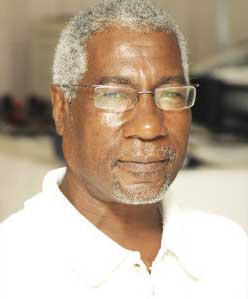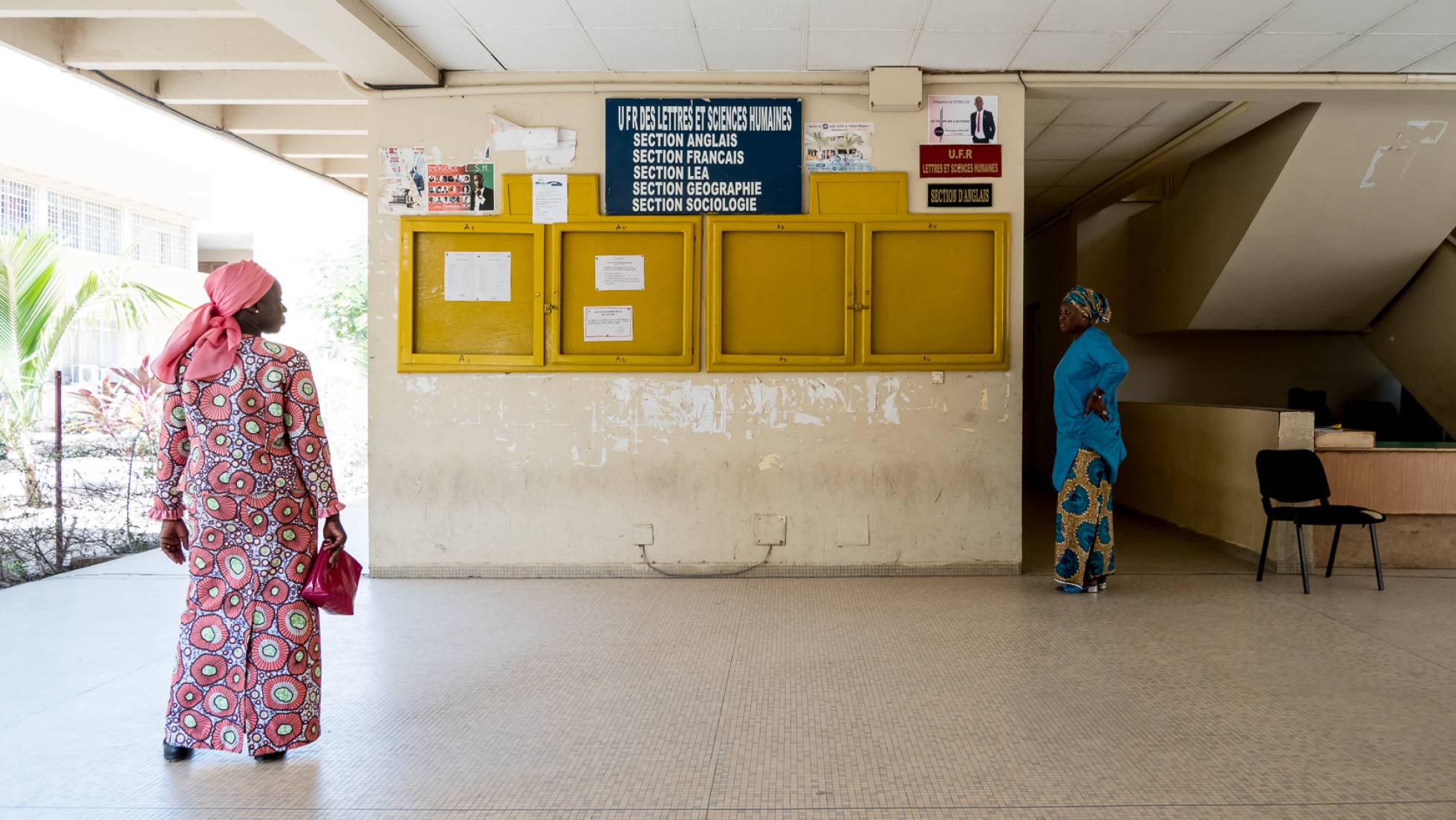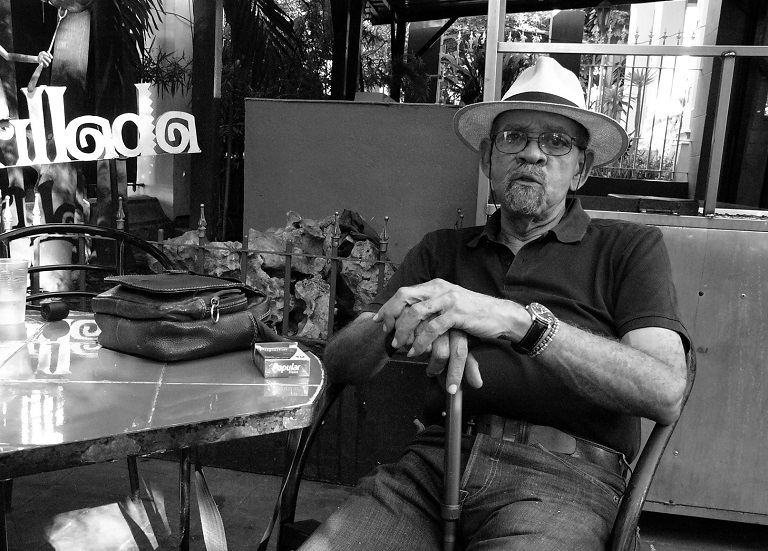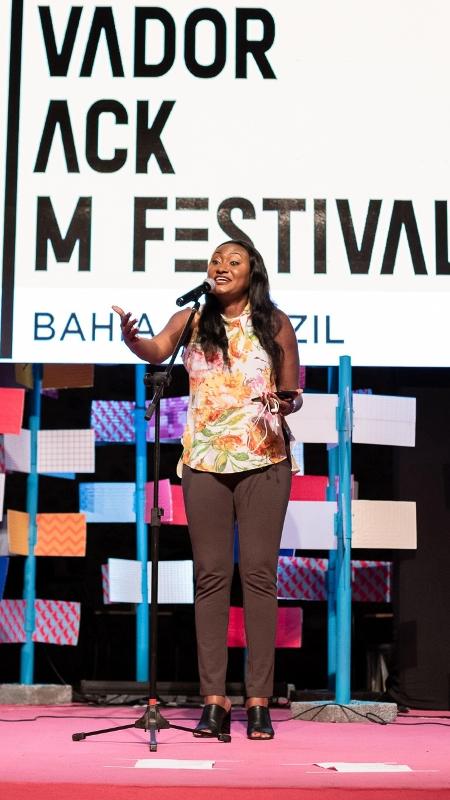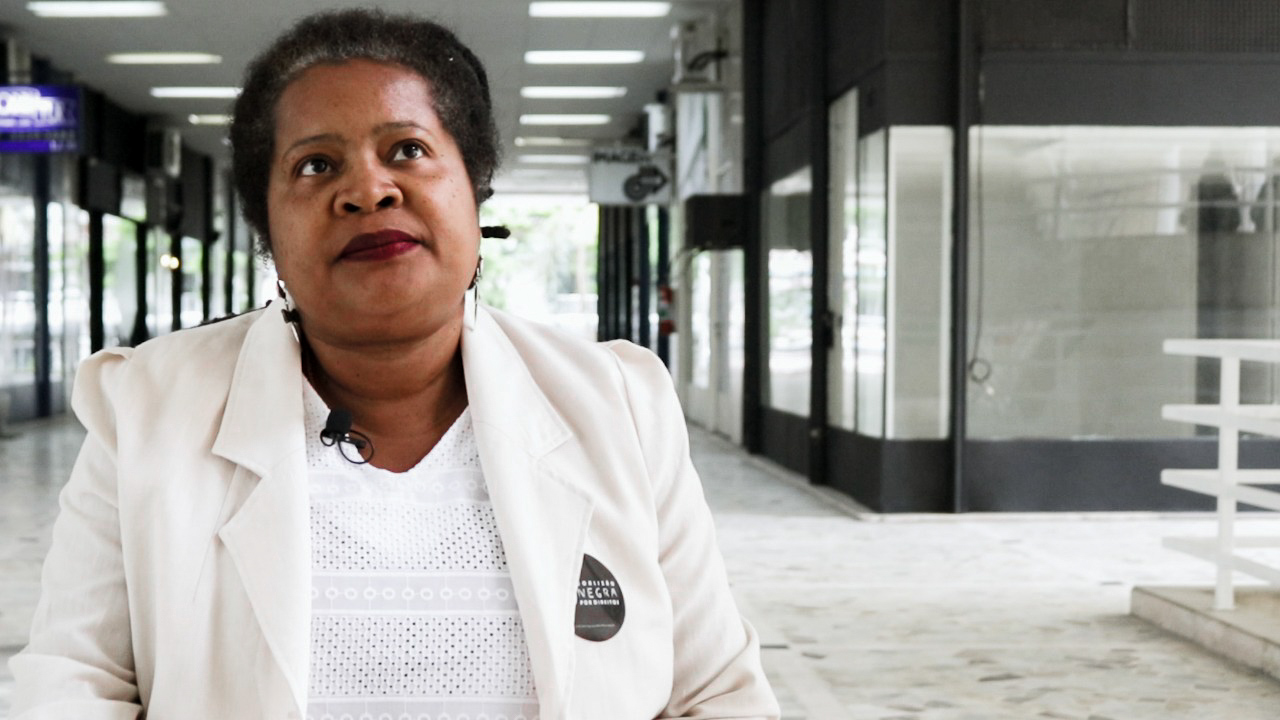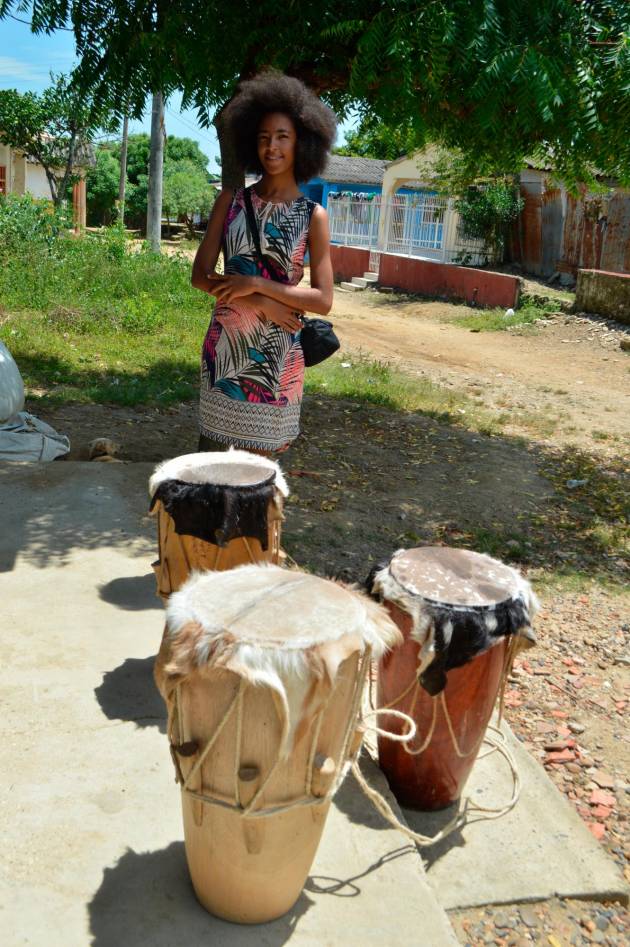Vilma Reis: we decided to stop white hegemony in politics
The sociologist will be try to be the first black woman elected mayor of Salvador and warns that “there will be nothing about us, without us”
Igor Carvalho and José Eduardo Bernardes
Brasil de Fato | São Paulo (SP), December 14, 2019 09:36
Vilma Reis is one of the Workers' Party's mayoral candidates: “We cannot accept the hegemony of 15% of the population in our city” / Photo: José Eduardo Bernardes/Brasil de Fato
During the international meeting of the Black Coalition for Rights, in November, in São Paulo, the black movement defined the conquest of spaces for political representation as a priority.
The focus on the search for representation takes place in one of the most active moments in the recent history of the black movement. In recent months, militants have been in Brasília (Federal District), where they fought against the anti-crime package of Minister Sergio Moro and fought against the agreement that could result in the delivery of the Alcântara Base to the United States and the expulsion of quilombolas from their territories.
Abroad, the movement denounced the genocide against the black Brazilian population in places hitherto occupied only by Brazilian whiteness, even if on the left. The United Nations (UN), the Organization of American States (OAS), the European Parliament and even the United States Congress were attended by the militants.
At the forefront of this articulation is sociologist Vilma Reis, who demands changes in the political class of Salvador, the country's blackest capital.
A pre-candidate, she intends to become the first black woman mayor in the history of Bahia's capital, currently governed by Antônio Carlos Magalhães Neto (Democrats), heir to the white political elite that has ruled the state for decades.
Vilma Reis explains that this is not a personal ambition, but a demand of the movement.
“We cannot accept the hegemony of 15% of the population in the city of Salvador, and white men, who are a minority within the white population, have hegemony in representing our city. We, from the black women's movement, in an act of colonial and patriarchal disobedience, decided to interrupt this absolute hegemony”, she says.
One of the first obstacles, says Reis, is facing white hegemony, even in left-wing parties. “All the careers of progressive whites in this country were built by us, all of them. Our understanding now is that it is no longer possible to ask us to wait, all the construction of movements that come from the street into the parties is that there will be nothing about us, without us”, Reis explains.
The sociologist intends to be a candidate for the Workers' Party, to which she has been affiliated since 2007. However, the party has not yet decided who will lead the ticket for the 2020 elections. Juca Ferreira, who was recently fired by Alexandre Kalil (Social Democratic Party), mayor of Belo Horizonte, from the city's Secretariat of Culture, is considered a strong name within the party in the dispute for Bahia's capital.
Check out the full interview:
Brasil de Fato: you announced that you are a mayoral candidate for Salvador. How did this decision take place?
Vilma Reis: For us, of Mahin [Collective Luiza Mahin], in Salvador and the state of Bahia, it's important to say that in 470 years of colonial occupation in our city — because there was no discovery of Brazil let alone founding of the city of Salvador — the heirs of colonization have absolutely remained in power.
The 2015 pre-Census gave us fantastic data from Salvador, which shows 85% black men and women population. It is an embarrassment, a shame, it is absurd for the world and for us, in fact, for us, the Brazilian left, we must yearn for more.
We cannot accept the hegemony of 15% of the population in the city of Salvador, and white men, who are a minority within the white population, have hegemony in representing our city. We, from the black women's movement, in an act of colonial and patriarchal disobedience, decided to interrupt this absolute hegemony.
It is important to say that our dispute is not with any other black person, it is to stop this white hegemony in the city.
The black movement, for years, has been complaining about the low representation in spaces of power. Do you agree?
Lélia Gonzales, in 1982, by running for deputy after a political decision of the black movement, in the Workers' Party, fulfilled a historical task determined by our movements.
In 1986, Luiza Bairros and Luiz Alberto in Bahia, by the Workers' Party, Edson Cardoso in Brasília, also by the Workers' Party, and Lélia herself in Rio de Janeiro, via the Democratic Labour Party, nominated themselves. The Unified Black Movement (Movimento Negro Unificado, MNU) also had candidates in both the Workers' Party and the Democratic Labour Party.
Not to mention that all the careers of progressive whites in this country were built by us, all of them. Our understanding now is that it is no longer possible to ask us to wait, all the construction of movements that come from the street into the parties is that there will be nothing about us, without us. This is the challenge that we are building on a very consolidated basis.
We will not withdraw our pre-candidacies and we will not negotiate our pre-candidacies, not even for a game of political pragmatism. For decades we have been building the left parties, both the old and the new left. There is not one left-wing party that has risen in this country without our mass membership and it is not acceptable for our parties to have a white hegemony in charge.
What we are doing is a school of political science, open and democratic, with popular participation, to pass this debate on to the whole country: we can no longer accept that. A good revolution starts at home and if we but on a turnaround in Brazil, it must happen in our parties.
So, it is good to say that our presence in the spaces of power and in decision-making processes is important for society as a whole. Remembering Lélia Gonzales, I say that we do not fight for a society for us, we fight for a society for everyone.
To quote Angela Davis, when black women move, the whole society moves. We see this photograph in the Public Defender's Offices, with a generation of black women. The black presence in universities, universities that will never be the same.
So, this last bastion needs to be changed, the power in the parties, almost all of them controlled by whites, whites on the right and whites on the left. We do not accept that, because we built these careers.
You study mass incarceration in the country. The numbers point to a vertiginous growth and tragedies are taking over the prisons. What is your reflection on the topic?
We founded a field of thought in Brazil on incarceration policies. We introduced the racial debate on mass incarceration and on the war on drugs issue. It seemed, a decade ago, that it was possible to debate the war on drugs without mentioning race relations; it is not possible.
So, for us, talking about criminal abolitionism, new policies and drug decriminalization is not a revolutionary agenda, it is in the mouth of reformists worldwide. We think that taking the power of death from the police and agglomerations that truly command drug trafficking is fundamental.
We understand that it is not possible to debate a nation project, knowing that more than 800 thousand people are incarcerated and of this group, 42% did not even have access to a trial. At most, they had a custody hearing in that first 24-hour period and those who did not have parole there are in prison.
The abuse of preventive detention has to do with racial choices within the justice system, which appeals to criminal populism and criminalizes black bodies. It is important to say that when a black man is incarcerated, his family is incarcerated. We serve time by extension.
There are 2.1 million people directly involved in the prison system. The electronic ankle tag is the new chain on the feet of the black man. It has a different meaning for a middle class white man, he can move around, but he doesn't need to take a bus, he doesn't need to leave his house to have the world at his feet.
Now, that same electronic ankle tag on a black man or woman is the end of our lives, you left one prison and entered another. We need to fight for penal abolitionism and that has to do with the fight against racism. All white people who have an anti-racist stance need to confront Brazil's penal system.
It is important to have this empathy, but in addition to empathy, you have to position yourself and confront the white world that does not feel bothered, for example, by a custody suite. When the defender is in a custody suite, you cannot behave like someone in a club with your friends. The world is round, but the Public Defender's Office has a side.
“A good revolution starts at home and if we but on a turnaround in Brazil, it must happen in our parties.”
The black movement has denounced the genocide of black youth in the country. What explains this extermination project denounced by you?
They have no other way of holding back our people's revolt. I live in a city like Salvador where a black woman is fighting for a spot in a daycare center, which started in October, with more than 150 women. How can this be acceptable in 2019?
We have situations in this entire country, like all the horror of mining, that our people cannot accept. We are the ones who know what Mariana was like that November 5, 2015, the horror that our people went through. So, their response is to further enrich the rich and put our people in poverty.
Then, in the face of our reaction to poverty, with the minimum wage policy, the practices of [Minister of Economy] Paulo Guedes, of PEC 95 [Proposed Constitutional Amendment of the Government Expenditure Ceiling], you freeze investments in Education and Health for 20 years, there's no way to endure this.
So, in the face of our indignation, their answer is the police armed to the teeth and the police killing recklessly.
In the country that plots our cultural, physical and political elimination 24 hours a day, coming into 2019, a hundred years after Monteiro Lobato said that Brazil would need to become white to be viable as a nation, as the majority of said nation is a victory. This is our first victory.
They kill us and our blood running becomes a seed. They failed to make us a minority. This is the only country in the world outside the African continent in which they have failed to exterminate us. Imagine the massacre in Argentina, Uruguay and even in the US, which has a black population that is no more than 14%, we are 54% and the next Census will give us another victory and show that we are 56%.
There is a war against us and the centuries have shown that we have few allies. We always ask ourselves: “how did we get here in the face of this massacre?”
We left Durban [Third World Conference Against Racism], in 2001, determined to make a change in the country and we did. We went from 0.4% at the University of Brasília, for example, to blackening the classrooms of all universities in this country.
Often alone, because all the parties and intellectuals on the left were against quotas; we convinced them. In the 1988 Constituent, we approved the regulation of quilombola lands and territories. Today, we have almost 7 thousand communities identified with the Palmares Foundation certificate. We have victories.
How did you receive the news that Sérgio Camargo would be appointed president of the Palmares Foundation?
The denial of racism, in a brutally racist country like Brazil, is the very affirmation of the existence of racism.
They are weak, because they are using a black man to fulfill the role that they do not have the courage to fulfill, because they would all go to trial. We will be on the street to prevent the possession of Sérgio Camargo [he eventually was suspended on December 12].
He does not represent our accumulation of struggle, he does not represent what we are in Brazil and if the colonial landlords who occupy the Planalto Palace and those who occupy the ministries had the baseness to use a politically unpositioned black man to put this thesis on, they are losing the narrative.
They had to use Sérgio Camargo to say these things because they are cowards. We are part of a generation that gave birth to our freedom, that's why Princess Isabel is a joke.
You cannot deny racism in this country, even the most liberal and cynical people in this country admit the existence of racism, like Fernando Henrique Cardoso. We are here to say that we are going to beat all scoundrels, all lackeys, who today inappropriately occupy spaces of power. We defend a leftist culture and it is with this dignity that we say that we will survive all of you, colonial landlords and your narratives, which are supported by centuries-old lies.
Edition: Rodrigo Chagas
Vilma Reis: we decided to stop white hegemony in politics
